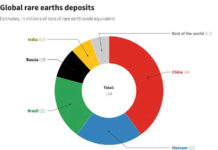Nguyen Huong Giang
Do Ngoc Kien
Keywords: NTM, Agri-food, cooperation
Abstract:
Non-tariff measures (NTMs) have become a complicated issue in international trade in recent years as its effects are broad and difficult to quantify. Agri-food sector is one of the most affected sectors under the implementation of NTMs, primarily SPS and TB. NTMs have mixed effects on trade, depending on product-specific, country-specific, and measure-specific. NTMs can both trade-facilitating and trade-hampering. Stringent NTMs bring welfare gain for import countries by increasing consumer surplus. In terms of the labour market, the effects of NTMs are different depending on countries context. Based on the literature review, we propose some policy recommendations to enhance agri-food exports, especially the collaboration among the government, research institutes, and enterprises. As an export industry with competitive advantages, Vietnam needs specific policies and measures to help increase exports of agricultural products. Firstly, exporters of agricultural products in developing countries need government support such as providing essential testing and input facilities as well as streamlined clearance procedures to meet country standards. Strict standards increase prices and sharply reduce import volumes, ultimately leading to a negative impact on export values. Therefore, it is necessary to improve the domestic standard system to meet international standards, to help businesses, especially small and medium-sized enterprises, be able to adapt in time and reduce compliance costs significantly. Secondly, due to the heterogeneous and unpredictable effects of NTMs, enterprises cannot directly recognize and evaluate the impact of such regulations. Therefore, it is necessary to involve academic institutions, including universities and research institutions, to improve the recognition and evaluation of businesses. In particular, support systems such as e-ping that help warn of changes in NTMs should be expanded in training institutions and in-depth courses for both businesses and on-site academics. On the contrary, on the side of researchers, the heterogeneous impact of NTMs requires researchers to have a practical, close-to-business approach. Thirdly, due to the welfare impact of NTMs on consumers’ health, the labor market is significant, it is necessary to estimate, calculate carefully, weigh the benefits and benefits between the adjustment costs of enterprises to get appropriate policies. Here, the state must act as a coordinating body rather than a policy-making body to guide businesses on the basis of research and evidence from research institutions, and then develop programs, take action to help build capacity and propagate policies to businesses. In general, because of the importance of NTMs in exporting agricultural products and the multi-dimensional impacts, there should be close cooperation between the state – educational institutions – businesses to make policies and build reasonable and international standards while minimizing the adjustment costs of enterprises in the industry.
Policy Brief 01 (full): Policy Brief 01_NTMs






